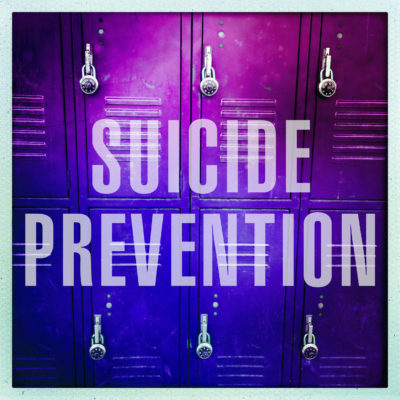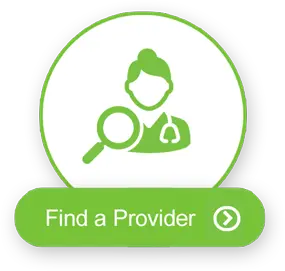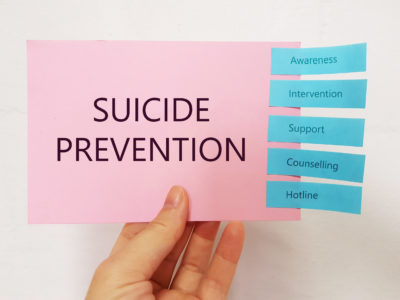Suicide is the “second leading cause of death for people ages 10-34,” according to the CDC.
If you are a parent of a teenage child, this stat can be sobering – and scary. Your teen has likely been exposed to suicide through news reports, discussions with their peers, or popular books and television shows, such as 13 Reasons Why.

According to experts at the American Foundation for Suicide Prevention (AFSP), you can help keep your teen safe by educating yourself – and by learning how to open lines of communication between yourself and your teen.
The risk factors of teen suicide
What is it that leads some teens and not others to react so extremely to conflicts that are relatively common among all teens?
“No two teenagers are alike, but there are some common reasons they consider suicide,” according to the Stanford Children’s Health website. “Many teens who attempt suicide do so during an acute crisis in reaction to some conflict with peers or parents. Such conflicts are common among teens, but those who attempt suicide are particularly reactive to them because they:
- Have a long-standing history of problems at home or school
- Suffer from low self-esteem
- Believe no one cares
- Are depressed
- Abuse alcohol or drugs
- Have experienced other acutely stressful events, such as an unwanted pregnancy, trouble with the law, or not meeting high parental expectations”
“Research shows that nine out of 10 individuals who attempt suicide have a history of mental illness or substance abuse, making these extremely important risk factors,” according to the Stanford Children’s Health website.
“The risk for suicide frequently occurs in combination with external circumstances that seem to overwhelm at-risk teens who are unable to cope with the challenges of adolescence because of predisposing vulnerabilities such as mental disorders,” according to the American Psychological Association (APA) website. “Examples of stressors are disciplinary problems, interpersonal losses, family violence, sexual orientation confusion, physical and sexual abuse and being the victim of bullying.”
The warning signs of teen suicide

“Something to look out for when concerned that a person may be suicidal is a change in behavior or the presence of entirely new behaviors. This is of sharpest concern if the new or changed behavior is related to a painful event, loss, or change,” according to an article on the AFSP website. “Most people who take their lives exhibit one or more warning signs, either through what they say or what they do.”
The APA shares some common warning signs of suicide including:
- “Talking about dying: Any mention of dying, disappearing, jumping, shooting oneself or other types of self harm.
- Recent loss: Through death, divorce, separation, broken relationship, self-confidence, self-esteem, loss of interest in friends, hobbies or activities previously enjoyed.
- Change in personality: Sad, withdrawn, irritable, anxious, tired, indecisive, apathetic.
- Change in behavior: Can’t concentrate on school, work or routine tasks.
- Change in sleep patterns: Insomnia, often with early waking or oversleeping, or nightmares.
- Change in eating habits: Loss of appetite and weight, or overeating.
- Fear of losing control: Acting erratically, harming self or others.
- Low self esteem: Feeling worthless, shame, overwhelming guilt, self-hatred, ‘everyone would be better off without me.’
- No hope for the future: Believing things will never get better, or that nothing will ever change.”
The AFSP article points out that parents, who know their teen’s usual patterns and common reactions to life’s challenges, may be more acutely aware than others of whether their teen is acting out of character. Because of this instinctive awareness of your teens, you may pick up on potentially serious changes in mental health.
If your instincts point you toward concern, talk to your teen about what’s going on and/or reach out to a mental health practitioner.
How to talk to your teen about suicide
Talking openly about suicide with your teenagers may not be easy but it is important. They already may be talking about it with their friends or thinking about it privately.
“With less experience than adults in receiving and processing distressing news, teens are uniquely positioned to be helped by an informed and responsive parent,” writes psychiatrist Timothy Rice, M.D. in an article in Psychology Today. “Starting a conversation with your teen after a high-profile suicide in the media is a key opportunity. Though you don’t have to wait for some tragic news to have this important conversation, these unfortunate events provide a special opportunity to create something meaningful and life-affirming from a loss. In doing so we may pay tribute to the deceased.”
By having an open discussion about suicide and suicide prevention, the warning signs and risk factors, you can clarify any questions your teen may have and open up communication lines with your teen about mental health issues, so that they may feel more at ease coming to you should they ever experience depression, sadness, or suicidal thoughts.
Since it may be difficult to get your teen to listen and talk with you, especially about sensitive subjects like suicide, engaging them may work best when you are alone with them during a car ride.
Here are four tips for how to approach a conversation about suicide with your teen:
- Use an example. Asking your teen if they heard about a suicide in the news. Share how you received the news and ask your teen how they thought about it. “Provide a bounded self-disclosure to model for your teen an appropriate sharing of reactions to promote open disclosure of your teen’s reaction as well,” according to the Psychology Today
- Be honest and direct. “Talking about suicide doesn’t cause suicide,” according to the Stanford Children’s Health “Ask your child how they’re doing, what’s happening in their world these days, and what their concerns are. It can start simply by asking, ‘Are you okay?’” according to an article on the AFSP website.
- Listen actively and without judgment. “Ask open-ended questions. . . Resist the urge to offer quick fixes or solutions to their challenges, which tends to shut down further dialog. Validate and support their feelings,” according to the AFSP article.
- Let them know you are always there for love and support. “[Talking about how they are feeling] can help to reassure [your teen] that they are loved and that you are available to help work out any problems,” according to an article by Dr. Melissa Conrad Stöppler on MedicineNet.com.
What to do if your teen has suicidal thoughts
“First, it is important to understand that thinking of suicide is not inherently dangerous,” writes Dr. Rice in Psychology Today. “Many, if not most people will find themselves thinking at some point that the world would be better off without them. However, finding out if those thoughts exist is an important step to ensuring your teen receives appropriate help.”
However, Dr. Rice writes that if you find your teen has these thoughts, it is time to explore how they are feeling. Ask about school, friends, relationships with loved ones, or anything that may be a cause of stress and these feelings.
“The next questions are perhaps the scariest, but also the most important to ask, and how you respond even more vital. Ask about whether they have made any plans or thought about how they might attempt a suicide, and how often they think about it. It is important not to over-react or under-react,” writes Dr. Rice. “Make your goal to gather information and be an understanding, empathetic listener while also remaining a concerned parent.”
If you have any concerns – your child discusses their thoughts about suicide, you see warning signs, and/or you recognize that they have some of the risk factors of suicide – it may be time to reach out to your pediatrician, family doctor, or mental health provider.
“Threats of suicide or preoccupation with suicide are a medical emergency and should never be ignored,” according to Dr. Stöppler in the MedicineNet.com article.
If you think your teen is in immediate danger, call 911, take them to a hospital or crisis center for evaluation, or call a suicide hotline number – such as the National Suicide Prevention Lifeline at 1-800-273-TALK (8255).
If you’d like to learn more about teens and mental health read these GeneSight blog posts:
https://genesight.com/blog/patient/depression-in-teenagers-signs-and-strategies-for-parents/
https://genesight.com/blog/patient/in-what-ways-does-social-media-affect-your-mental-health/
https://genesight.com/blog/patient/suicide-and-social-media-risks-and-how-to-help/
Our articles are for informational purposes only and are reviewed by our Medical Information team, which includes PharmDs, MDs, and PhDs. Do not make any changes to your current medications or dosing without consulting your healthcare provider.
The GeneSight test must be ordered by and used only in consultation with a healthcare provider who can prescribe medications. As with all genetic tests, the GeneSight test results have limitations and do not constitute medical advice. The test results are designed to be just one part of a larger, complete patient assessment, which would include proper diagnosis and consideration of your medical history, other medications you may be taking, your family history, and other factors.
If you are a healthcare provider and interested in learning more about the GeneSight test, please contact us at 855.891.9415. If you are a patient, please talk with your doctor to see if the GeneSight test may be helpful.







